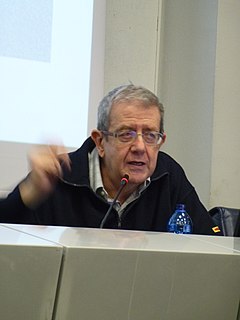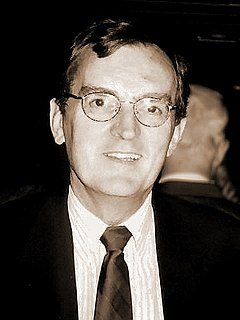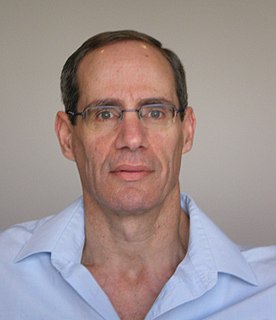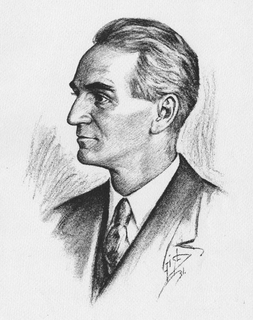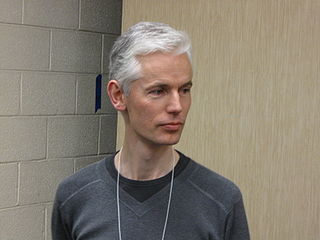A Quote by Lucio Russo
Euclid manages to obtain a rigorous proof without ever dealing with infinity, by reducing the problem [of the infinitude of primes] to the study of finite numbers. This is exactly what contemporary mathematical analysis does.
Related Quotes
Nonmathematical people sometimes ask me, “You know math, huh? Tell me something I’ve always wondered, What is infinity divided by infinity?” I can only reply, “The words you just uttered do not make sense. That was not a mathematical sentence. You spoke of ‘infinity’ as if it were a number. It’s not. You may as well ask, 'What is truth divided by beauty?’ I have no clue. I only know how to divide numbers. ‘Infinity,’ ‘truth,’ ‘beauty’—those are not numbers.
We know that there is an infinite, and we know not its nature. As we know it to be false that numbers are finite, it is therefore true that there is a numerical infinity. But we know not of what kind; it is untrue that it is even, untrue that it is odd; for the addition of a unit does not change its nature; yet it is a number, and every number is odd or even (this certainly holds of every finite number). Thus we may quite well know that there is a God without knowing what He is.
Every attempt to employ mathematical methods in the study of chemical questions must be considered profoundly irrational and contrary to the spirit of chemistry.... if mathematical analysis should ever hold a prominent place in chemistry -- an aberration which is happily almost impossible -- it would occasion a rapid and widespread degeneration of that science.
Far be it from us to doubt that all number is known to Him 'Whose understanding is infinite' (Ps. 147:5). The infinity of number, though there be no numbering of infinite numbers, is yet not incomprehensible by Him Whose understanding is infinite. And thus, if everything which is comprehended is defined or made finite by the comprehension of him who knows it, then all infinity is in some ineffable way made finite to God, for it is comprehensible by His knowledge.
Does there exist an Infinity outside ourselves? Is that infinity One, immanent and permanent, necessarily having substance, since He is infinite and if He lacked matter He would be limited, necessarily possessing intelligence since He is infinite and, lacking intelligence, He would be in that sense finite. Does this Infinity inspire in us the idea of essense, while to ourselves we can only attribute the idea of existence? In order words, is He not the whole of which we are but the part?
The transfinite numbers are in a certain sense themselves new irrationalities and in fact in my opinion the best method of defining the finite irrational numbers is wholly disimilar to, and I might even say in priciple the same as, my method described above of introducing trasfinite numbers. One can say unconditionally: the transfinite numbers stand or fall with the finite irrational numbers; they are like each other in their innermost being; for the former like the latter are definite delimited forms or modifications of the actual infinite.
What I assert and believe to have demonstrated in this and earlier works is that following the finite there is a transfinite (which one could also call the supra-finite), that is an unbounded ascending lader of definite modes, which by their nature are not finite but infinite, but which just like the finite can be determined by well-defined and distinguishable numbers.
We come no nearer the infinitude of the creative power of God, if we enclose the space of its revelation within a sphere described with the radius of the Milky Way, than if we were to limit it to a ball an inch in diameter. All that is finite, whatever has limits and a definite relation to unity, is equally far removed from the infinite... Eternity is not sufficient to embrace the manifestations of the Supreme Being, if it is not combined with the infinitude of space.
